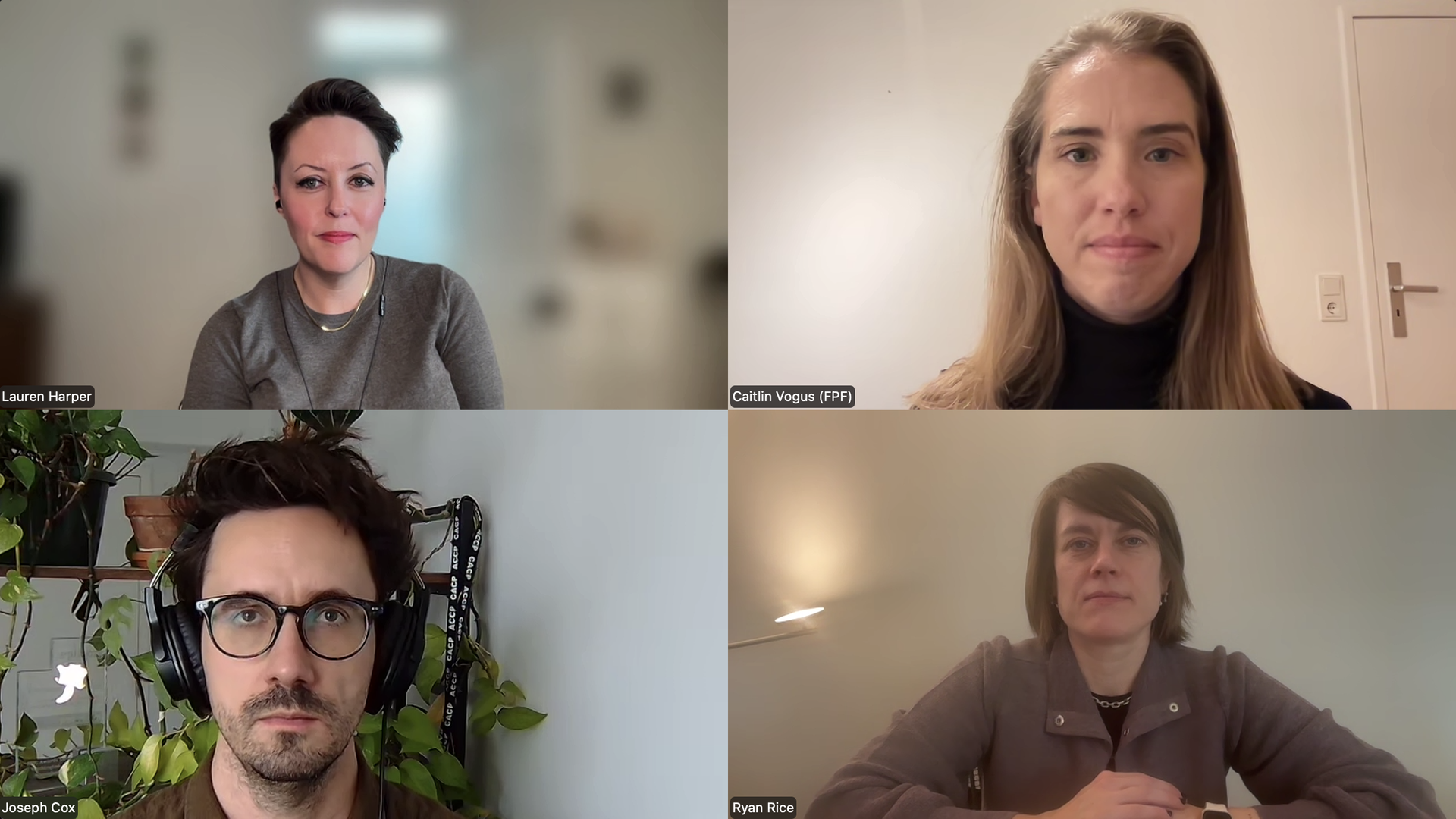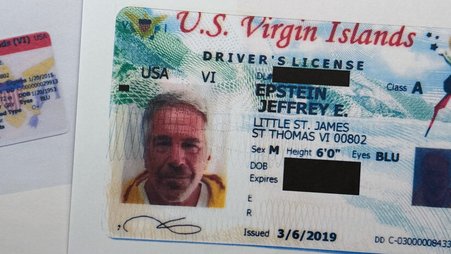When Wired published the contents of 911 calls coming from inside Immigration and Customs Enforcement detention centers, revealing shocking reports of overcrowding and sexual assault, the story wasn’t just harrowing. It was also freely available to anyone who wanted to read it.
And when 404 Media reported that law enforcement agents were tapping into a nationwide network of license plate readers — including one Texas officer who used the system to track a woman who’d self-administered an abortion — it made sure the news story and every record it was based on were unpaywalled.
Wired and 404 Media are two of the news organizations leading the way in removing paywalls for public records-based reporting. Recently, Freedom of the Press Foundation (FPF) sat down with Katie Drummond, global editorial director of Wired and an FPF board member; Joseph Cox, co-founder of 404 Media; and FPF’s Lauren Harper to discuss why reporting based on public records should be free.
Drummond, Cox, and Harper described how unpaywalling reporting based on records obtained through the Freedom of Information Act or other public records laws not only serves democracy but also strengthens journalism itself.
‘A very valuable public service’
For both Wired and 404 Media, the reasons for removing paywalls for public records-based reporting are self-evident.
“It’s a very valuable public service to make people aware of what tools and tactics are being deployed to monitor and surveil people,” said Drummond, speaking about some of Wired’s public records reporting. “They should know what’s sort of happening that they may not be aware of, and to be able, again, to make that available to our audience without a paywall is important.”
Similarly, Cox described how reporting based on public records can lead to real-world reforms, especially when it’s widely available to the public and lawmakers. For instance, 404 Media’s reporting on Flock Safety, the license plate reader company, didn’t just expose surveillance abuses. It also caused Flock to make “radical changes to its product” and triggered congressional investigations, Cox said.
Additionally, by making the reporting and records about Flock freely available, 404 Media helped other journalists. The free access “created this sort of wave of local media coverage where now local journalists are doing basically the same public records request, but for their own communities or towns or cities,” Cox said.
Joseph Cox, co-founder of 404 MediaFree access to public records-based reporting at 404 Media “created this sort of wave of local media coverage where now local journalists are doing basically the same public records request, but for their own communities or towns or cities.”
Flagging new sources for future reporting
Free access to public records-based reporting also builds trust and relationships with readers and sources.
“There’s just something about being able to have a government document,” Cox said. “It’s real. You got it from the government through a FOIA request, or a lawsuit, or whatever, and you can then show that to readers. We don’t want to get in the way of that.”
Making this reporting and the records it’s based on free can also draw the attention of important sources for future reporting. Cox described how his reporting based on FOIA requests sends a signal to readers and sources that he’s interested in particular companies or topics.
Sources reading the free articles realize, Cox said, “‘Oh, this journalist is interested in Flock, in Palantir, or whatever it might be.’ And then, lo and behold, because we make it so easy for potential sources to reach us securely, on Signal or through other methods, we’ll probably end up getting a leak from one of those companies as well.”
Harper, who often writes about her FOIA requests for FPF, shared how publishing FOIA work openly can attract new sources and deepen reporting. “The more obvious I make my FOIA work, the more feedback I get from folks” about what to file future FOIA requests for, she explained.
That kind of transparency fuels better journalism, she said. “It is a virtuous cycle. The more we talk about and advertise FOIA, the better our FOIA requests become as a result.”
The economics of openness
Yet, the public records reporting that Wired and 404 Media have made freely available isn’t free to produce. Both news outlets rely on subscriptions and paywalls to fund their journalism.
As Drummond explained, “The FOIA process can often be labor-intensive, resource-intensive, time-consuming — all of the things that would increase your incentive to put a paywall up on that work,” she said.
But both Wired and 404 Media have found that removing paywalls for public records-based reporting is actually the better decision, financially.
“We made a calculated bet that our audience would show up for us when we did this,” Drummond said. “That bet paid off above and beyond what I could have possibly imagined.”
Katie Drummond, global editorial director of Wired“That bet paid off above and beyond what I could have possibly imagined.”
After Wired announced it would unpaywall its public records-based stories, Drummond said it saw a “huge increase in subscribers” and received “hundreds of emails from people thanking us for doing it.” Far from hurting the bottom line, she said, “It has been additive to the business rather than taking anything away, from a financial point of view.”
For Cox, the same principle holds true: Transparency drives reader trust, and trust drives support. Every FOIA-based story on 404 Media’s website includes a short note explaining that it’s free but inviting readers to support the outlet’s work through a subscription or one-time donation.
“Look, we’re trying to run a business,” Cox said. “But we’re in it for the journalism. That’s literally why we wake up every single morning, to go write articles and put them on the internet.” He added, “And it does pay off, I think, journalistically, ethically, and businesswise as well.”
‘It’s very hard for me to think of a compelling reason not to do this’
If public records laws like FOIA are tools for public accountability, then journalism that relies on them should be public too. Simply put, “Public records belong to the public,” as Harper said. In a moment when the public’s access to government information is being increasingly curtailed, Wired and 404 Media are proving that openness isn’t just ethical — it’s effective.
Other news outlets should follow their lead. “It is of tremendous value for your audience,” said Drummond. “It’s very hard for me to think of a compelling reason not to do this.”
Cox echoed the sentiment: “There’s a public interest in getting those documents in front of more people. And there is, maybe counterintuitively, but there definitely is, a business benefit to it as well.”





